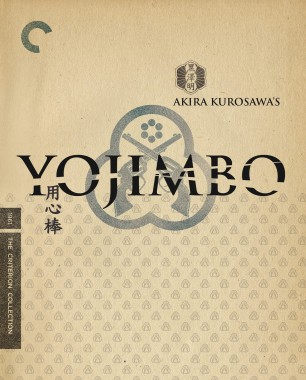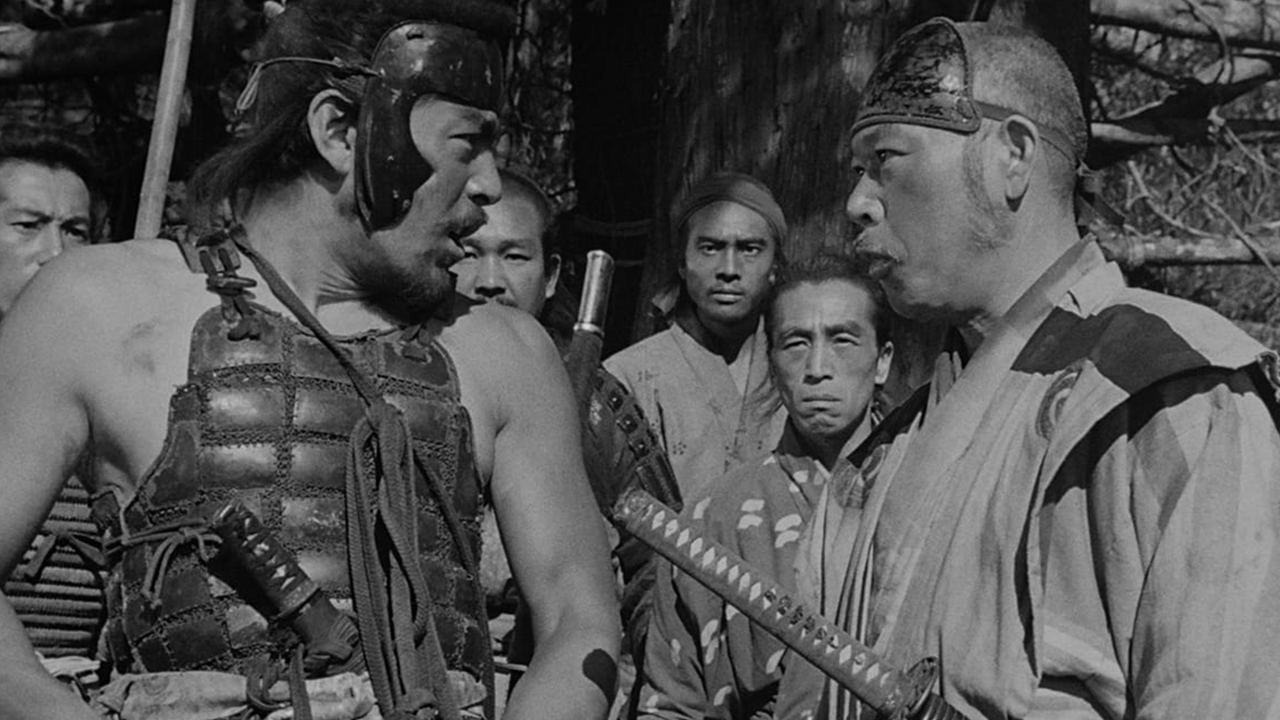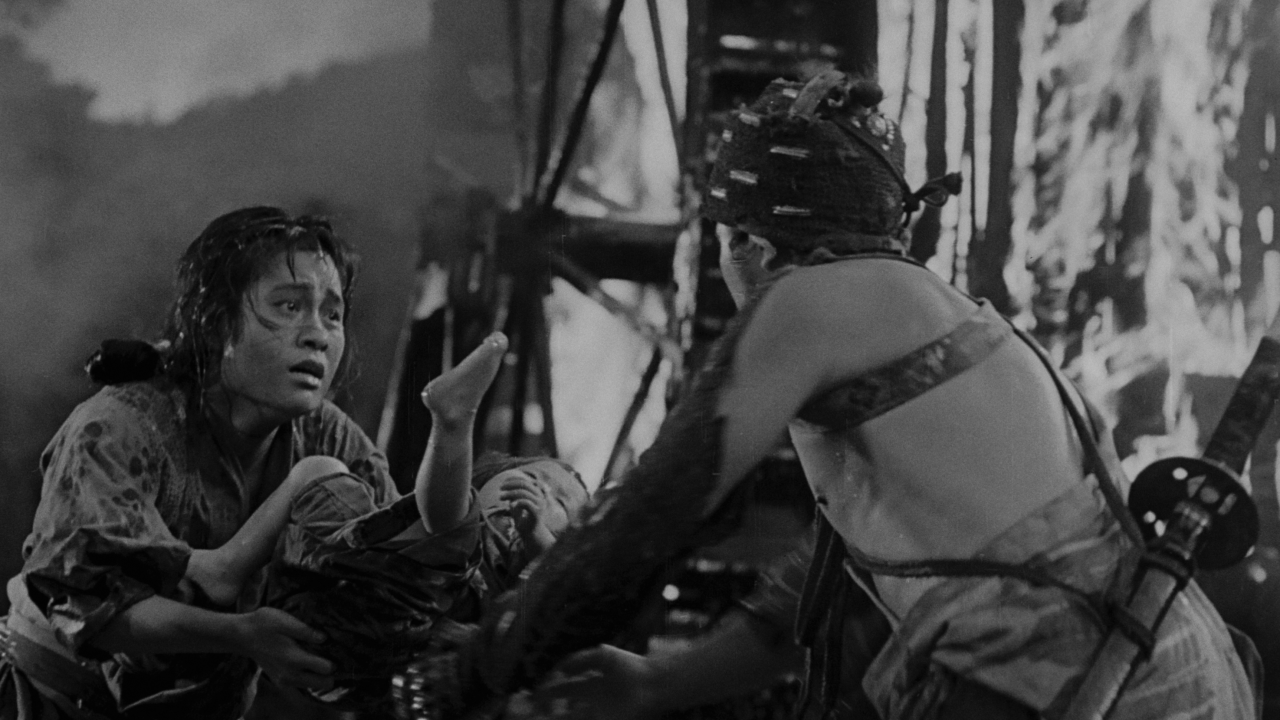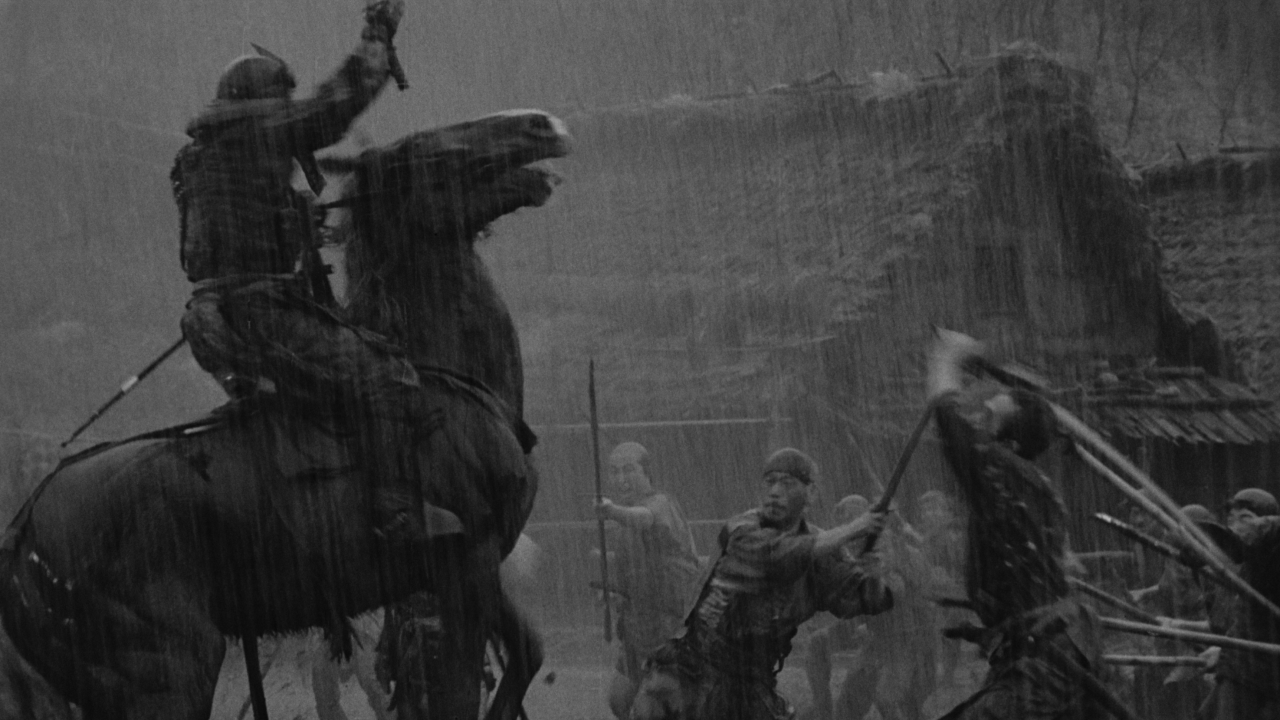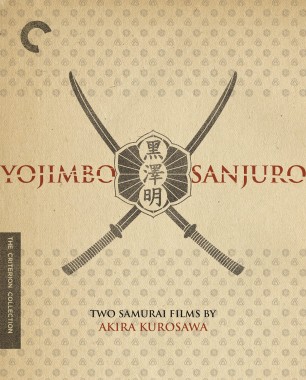Seven Samurai

One of the most thrilling movie epics of all time, Seven Samurai (Shichinin no samurai) tells the story of a sixteenth-century village whose desperate inhabitants hire the eponymous warriors to protect them from invading bandits. This three-hour-plus ride from Akira Kurosawa—featuring legendary actors Toshiro Mifune and Takashi Shimura—seamlessly weaves philosophy and entertainment, delicate human emotions and relentless action, into a rich, evocative, and unforgettable tale of courage and hope.

4K UHD + BLU-RAY SPECIAL EDITION FEATURES
- New 4K digital restoration, with the original uncompressed monaural soundtrack and an optional 2.0 surround DTS-HD Master Audio soundtrack
- One 4K UHD disc of the film (in the aspect ratio of 1.37:1) and two Blu-rays with the film (in the aspect ratio of 1.33:1) and special features
- Two audio commentaries, one featuring film scholars David Desser, Joan Mellen, Stephen Prince, Tony Rayns, and Donald Richie, and the other Japanese-film expert Michael Jeck
- Making-of documentary, created as part of the Toho Masterworks series Akira Kurosawa: It Is Wonderful to Create
- My Life in Cinema (1993), a two-hour conversation between director Akira Kurosawa and filmmaker Nagisa Oshima
- “Seven Samurai”: Origins and Influences, a documentary looking at the samurai traditions and films that helped shape Kurosawa’s masterpiece
- Trailers and teaser
- Gallery of rare posters, behind-the-scenes photos, and production stills
- PLUS: Essays by Kenneth Turan, Peter Cowie, Philip Kemp, Peggy Chiao, Alain Silver, Stuart Galbraith IV, Arthur Penn, and Sidney Lumet, and an interview with actor Toshiro Mifune from 1993
Cover by Neil Kellerhouse
Collector's Sets
4K UHD + BLU-RAY SPECIAL EDITION FEATURES
- New 4K digital restoration, with the original uncompressed monaural soundtrack and an optional 2.0 surround DTS-HD Master Audio soundtrack
- One 4K UHD disc of the film (in the aspect ratio of 1.37:1) and two Blu-rays with the film (in the aspect ratio of 1.33:1) and special features
- Two audio commentaries, one featuring film scholars David Desser, Joan Mellen, Stephen Prince, Tony Rayns, and Donald Richie, and the other Japanese-film expert Michael Jeck
- Making-of documentary, created as part of the Toho Masterworks series Akira Kurosawa: It Is Wonderful to Create
- My Life in Cinema (1993), a two-hour conversation between director Akira Kurosawa and filmmaker Nagisa Oshima
- “Seven Samurai”: Origins and Influences, a documentary looking at the samurai traditions and films that helped shape Kurosawa’s masterpiece
- Trailers and teaser
- Gallery of rare posters, behind-the-scenes photos, and production stills
- PLUS: Essays by Kenneth Turan, Peter Cowie, Philip Kemp, Peggy Chiao, Alain Silver, Stuart Galbraith IV, Arthur Penn, and Sidney Lumet, and an interview with actor Toshiro Mifune from 1993
Cover by Neil Kellerhouse

Cast
- Toshiro Mifune
- Kikuchiyo
- Takashi Shimura
- Kambei
- Keiko Tsushima
- Shino
- Yukiko Shimazaki
- Wife
- Kamatari Fujiwara
- Farmer Manzo
- Daisuke Kato
- Shichiroji
- Isao Kimura
- Katsushiro
- Minoru Chiaki
- Heihachi
- Seiji Miyaguchi
- Kyuzo
- Yoshio Kosugi
- Farmer Mosuke
- Bokuzen Hidari
- Farmer Yohei
- Yoshio Inaba
- Gorobei
Credits
- Director
- Akira Kurosawa
- Screenplay
- Akira Kurosawa
- Producer
- Sojiro Motoki
- Cinematography
- Asakazu Nakai
- Screenplay
- Hideo Oguni
- Screenplay
- Shinobu Hashimoto
- Music
- Fumio Hayasaka
- Editing
- Hiroshi Nezu
Trailer for Seven Samurai
Edition introduction to Seven Samurai
















